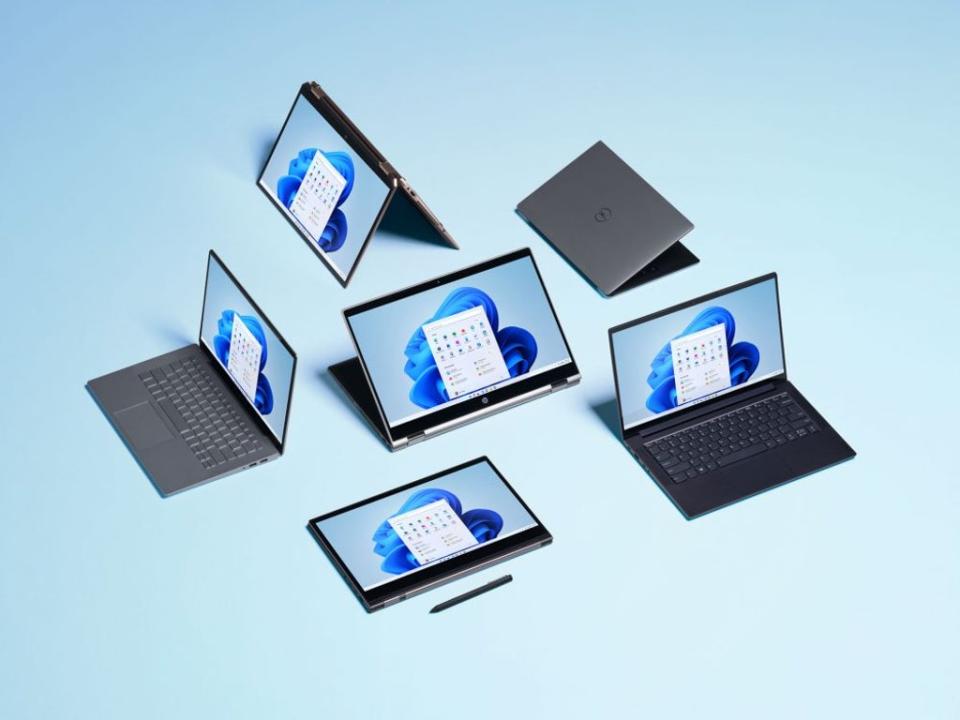Microsoft launches Windows 11 today – but only for some people

Windows 11, Microsoft’s latest operating system, has launched worldwide today - although only for some users.
The new operating system is apparently faster, with a rounder user interface, light and dark modes, and Snap Layouts and Snap Groups. This new feature lets users group apps together in the new Start Menu, which can then be brought up at a click of a button from the taskbar.
Most distinctly, it comes with a new Start Menu, located in the middle of the taskbar. Windows 11 also consolidates different Microsoft services, such as Teams replacing Skype, and updates to a dedicated Xbox app for video game streaming.
Live Tiles, which showed widget-like information since Windows 8, have now been removed; sent instead to a dedicated Widgets button in the taskbar.
It has also modernised, with new Settings menus and options, but older user interfaces such as Control Panel still feature which some users may find disappointing in an otherwise sleek operating system.
Microsoft says, however, that the rollout of Windows 11 “will be phased and measured”, and that “new eligible devices will be offered the upgrade first” before “in-market devices” based on hardware eligibility, reliability metrics, age of device and other factors.
In some ways, Microsoft has attempted to make Windows a more open platform – such as the integration of Amazon and potentially other app stores in the newly redesigned Windows Store. Microsoft’s chief product officer for Windows Panos Panay had told The Independent exclusively that “all stores [and] all apps are welcome on Microsoft Store” when Windows 11 was first announced.
In other ways, Microsoft is still trying to tighten its control on the operating system. In Windows 11, changing the default browser app – usually from Microsoft Edge to Google Chrome – only works with regards to a specific file type format unless users tick an “always use this app” button instantly. In Windows 10, however, this could be done much more quickly.
Similarly, the built-in search function on Windows 11 is still tied completely to the Bing search engine rather than any more popular, or more private options. This comes as Google claims that “Google” is the most popular search term on Bing. Microsoft declined to comment.
Windows 11 has also not been the smooth upgrade that many would expect. The software giant had originally said that computers running Windows 11 would require a Trusted Platform Module (TPM) 2.0 chip. This is a security chip mostly used in professional notebook machines and desktops to store and protect passwords and encryption keys.
This decision, however, meant that some of Microsoft’s own computers, including the Surface Pro tablets, the Surface Hub, and the Surface studio, would not be able to run Windows 11. Apple’s macOS, by contrast, supports devices from as far back as 2013.
However, Microsoft then said that 7th generation processors might be able to run Windows 11 and introduced a “soft floor” (the requirement by which Windows 11 could be installed through an ISO) that allowed computers with the older TPM 1.2 chip to run the new operating system.
Unfortunately, Microsoft has said that unsupported PCs may not receive Windows Updates – including security and driver updates – and is sending pop-up acknowledgements so users will accept that their PC would “no longer be supported” and its warranty might be void.
The decision is especially concerning for workplaces that use older versions of Windows and are unable to update. In 2017, the ransomware Wanna Decryptor caushed chaos in hospitals across the UK, where it was discovered that 90 per cent of NHS computers ran Windows XP, which was released in 2001 and had official support ended in 2014. Microsoft has said Windows 10 will be supported until 2025.
Read More
Bitcoin price surge drives Ethereum, Cardano and dogecoin revival – follow live
IndyTech: The Independent launches a free weekly technology newsletter
Bitcoin price breaks $50k, surpassing Facebook’s market value

 Yahoo Finance
Yahoo Finance 